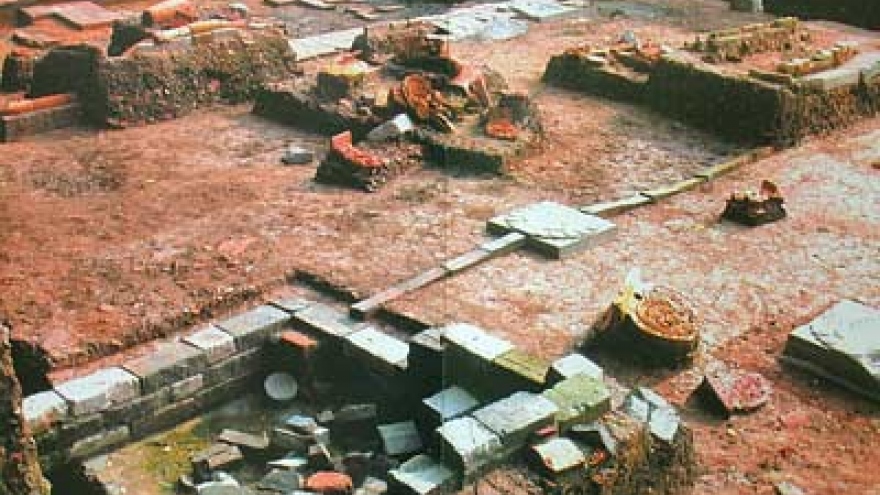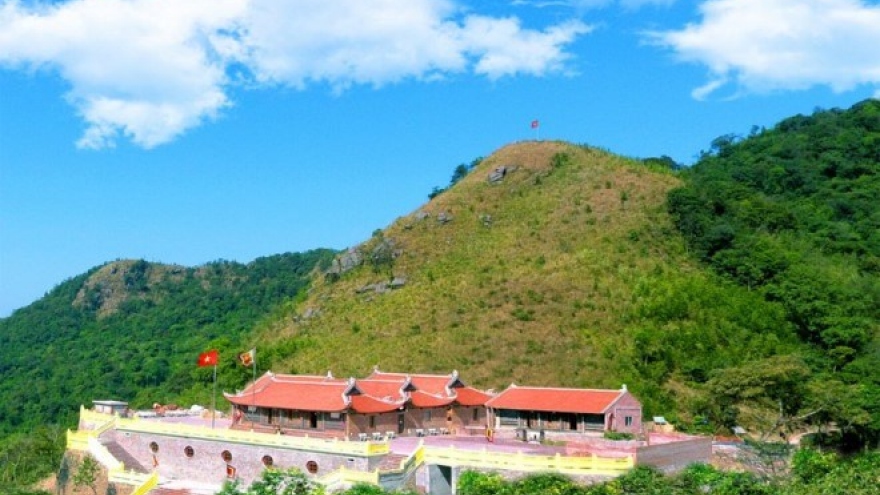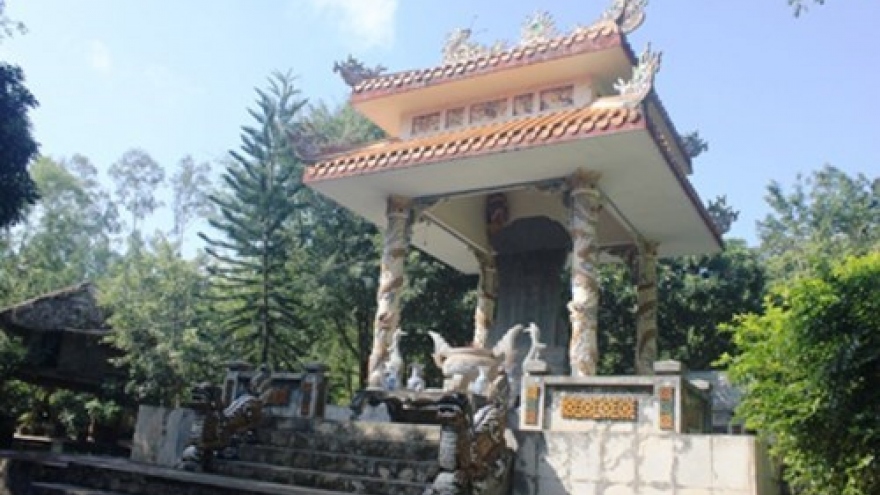Evidence of early humans unearthed in Central Highlands province
Over 1,000 stone objects and 600 pieces of meteorite dating back 800,000 years have been unearthed at archaeological sites in An Khe in the Central Highlands province of Gia Lai.
 |
| An excavation site in An Khe Town, Gia Lai province. (Photo: baovanhoa.vn) |
Over the past five years, archaeologists from the Vietnam Archaeology Institute and Russia Science Academy have discovered 24 Paleolithic sites, four of which have been excavated, including Go Da, Roc Tung 1, Roc Tung 4 and Roc Tung 7.
Russian experts brought the meteorite home and conducted further analysis. They found that the meteorite samples gathered at the Go Da site (An Binh ward) were around 806,000 years old and samples from Roc Tung 1 dated back 782,000 years.
Alexander Kandyba, from the Novosibirsk Archaeology – Ethnology Institute (under the Russia Science Academy) said five years after they conducted the first excavations in An Khe, scientists discovered the objects were similar to those found in Guangxi, China.
“The stone tools found are different to those in Europe,” he said. “This proves our belief that the skill of cutting stone objects in An Khe was a domestic development. This area has a special cultural mark in Southeast Asia.”
“Findings at An Khe have created a new direction for research on the beginning of Vietnamese history, at the same time putting Vietnam on the map of the human development in the early Stone Age,” said Professor Nguyen Khac Su, from the Vietnam Archaeology Institute.
According to Nguyen Thi Thanh Lich, Secretary of the Party Committee of An Khe township, the local authorities would spare no efforts to support concerned agencies to preserve the site and develop tourism as well as serve research purposes in the future.
The unearthed objects have been displayed at An Khe township’s museum.
“This international workshop aimed to officially announce findings at archaeological sites in An Khe over the past five years,” said Professor Nguyen Gia Doi, Director of the Vietnam Archaeology Institute.
“The institute will take advantage of different opinions by domestic and international experts to examine the authenticity of An Khe history and compile a scientific dossier for the relic to seek State recognition as a National Relic Site as well as open other research at the site,” he said.
Russian researcher Anatony Derevianko suggested offering local authorities a vision and strategy to develop archaeological values.
“With objects unearthed, An Khe can be considered one of the most ancient birthplaces of human beings,” he said. “We will continue our research here if the two governments agree.” The results of the dig were announced at an international workshop gathering 200 international scholars held at the site at the end of March.
Over the past five years, archaeologists from the Vietnam Archaeology Institute and Russia Science Academy have discovered 24 Paleolithic sites, four of which have been excavated, including Go Da, Roc Tung 1, Roc Tung 4 and Roc Tung 7.
Russian experts brought the meteorite home and conducted further analysis. They found that the meteorite samples gathered at the Go Da site (An Binh ward) were around 806,000 years old and samples from Roc Tung 1 dated back 782,000 years.
Alexander Kandyba, from the Novosibirsk Archaeology – Ethnology Institute (under the Russia Science Academy) said five years after they conducted the first excavations in An Khe, scientists discovered the objects were similar to those found in Guangxi, China.
“The stone tools found are different to those in Europe,” he said. “This proves our belief that the skill of cutting stone objects in An Khe was a domestic development. This area has a special cultural mark in Southeast Asia.”
“Findings at An Khe have created a new direction for research on the beginning of Vietnamese history, at the same time putting Vietnam on the map of the human development in the early Stone Age,” said Professor Nguyen Khac Su, from the Vietnam Archaeology Institute.
According to Nguyen Thi Thanh Lich, Secretary of the Party Committee of An Khe township, the local authorities would spare no efforts to support concerned agencies to preserve the site and develop tourism as well as serve research purposes in the future.
The unearthed objects have been displayed at An Khe township’s museum.
“This international workshop aimed to officially announce findings at archaeological sites in An Khe over the past five years,” said Professor Nguyen Gia Doi, Director of the Vietnam Archaeology Institute.
“The institute will take advantage of different opinions by domestic and international experts to examine the authenticity of An Khe history and compile a scientific dossier for the relic to seek State recognition as a National Relic Site as well as open other research at the site,” he said.
Russian researcher Anatony Derevianko suggested offering local authorities a vision and strategy to develop archaeological values.
“With objects unearthed, An Khe can be considered one of the most ancient birthplaces of human beings,” he said. “We will continue our research here if the two governments agree.”



